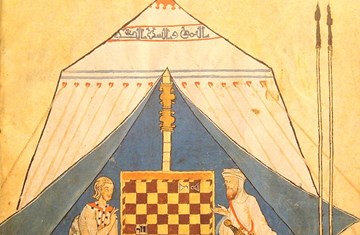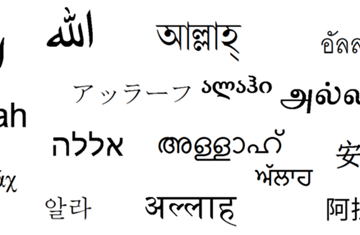Biomedical Ethics among Muslims
The Constituency Studies Unit at IIS undertakes research on issue of contemporary relevance facing communities of faith, including the Ismaili community. As part of their multifaceted research, Rafiq Ajani and Yaser Mirdamadi along with Hossein Dabbagh, have recently published an open access paper in the Journal of Bioethical Inquiry. This paper reviews and assesses current approaches to Muslim biomedical ethics. The concern here is not what responses Muslim jurists or ethicists arrive at, rather it is how they arrive at those responses, what processes the jurists or ethicists typically undertake to make a legal or a moral judgment, and what approaches they take in their legal or moral reasoning. Based on the analysis of available methodologies, the paper categorises Muslim responses and reasoning in three categories: textual, contextual and para-textual.
Why is this important for the community?
Since the seventh century, Muslims have produced significant works on ethics that provide us with the source material for a historical and analytical study of the methodology and rationale for issues such as abortion, euthanasia, organ transplant and surrogacy. Even though biomedical technology is new, the ethical foundations applicable to current biomedical ethical issues are not of recent coinage. The paper shows how contemporary Muslim scholars relate to the historical source material, and the diverse ways in which contemporary reasoning is applied considering the Muslim intellectual heritage. The paper provides readers with a view of the diversity of methodology and reasoning in biomedical ethics. It also shows a trajectory of contemporary thinking on bioethics among Muslims.
At IIS, scholars have conducted considerable research in exploring the diversity of thinking among Muslims. The Anthology of Qurʾanic Commentaries is a key example of how a comparative approach is taken in studying the many facets and schools of thought in Islam. A similar approach is taken in this paper to explore the reasoning on biomedical ethical issues from diverse communities of interpretation. As such, the paper provides a reasonably comprehensive and descriptive, rather than a prescriptive, view of various modes of thinking on contemporary biomedical ethical issues. It shows that there is not a single view but a spectrum of views on bioethics among Muslims.
What is the framework presented in the paper?
The primary purpose of the paper is to show the ‘use’ of classical sources within ethical deliberation among Muslims and to highlight the intellectual processes and reasoning that are used to arrive at a decision. The paper also shows the variety of ways in which Muslims apply historically acceptable ethical premises to the issues of the modern world. In doing so, the paper is mindful not only of the recent literature but also of pre-modern debates in Muslim theology and jurisprudence. A secondary aim of the paper is to provide readers with a broader conceptual understanding of the current literature on biomedical ethics among Muslims.
There are several ways in which Muslim biomedical ethical issues have been studied in academia. Some have studied these issues along denominational lines (Shiʿi/Sunni), whereas others have presented the responses along the lines of schools of jurisprudence (such as, Jaʿfari, Maliki, Hanafi, Shafiʿi and Hanbali). Some have considered trends in jurisprudence as their criteria (such as, the maqasid — rational purposes — and maslaha — public interest), whereas others have tried an exploration of responses on a regional basis. All these available criteria of denominational lines, schools of jurisprudence, trends in jurisprudence or regional lines, have their own purposes and merits. However, a common disadvantage of the above-mentioned criteria is that they break down the responses along the lines of communities of interpretation rather than the methods of interpretation.
As mentioned, by focusing on methodology the paper endeavours to show that it is possible to discuss biomedical ethics among Muslims without involving denominational or sectarian divisions. The methodological view opens avenues of shared compatibilities, and points towards ways in which Muslim intellectual traditions may lead to enhancing civil society rather than constricting it.
The three methodological categories outlined in the paper are as follows:
- Textual Approaches
There are responses and reasoning within writings on Muslim biomedical ethics that are confined to the ‘textual’ boundaries of the scriptural sources: the Qurʾan, Hadith of the Prophet, and Hadith of the Imams in the Shiʿi tradition. In textualist methodology, a strict compliance with the scripture, often through a literal understanding of the text, plays an essential role in reaching judgments about biomedical-ethical issues. - Contextual Approaches
On the other hand, there are responses and reasoning in Muslim biomedical ethics that are based on a ‘contextual’ understanding of the scriptural sources. In contextualist methodology, compliance with the scripture is also vital, yet rationality is given due consideration, where it is employed to examine context-sensitive interpretations of the scriptural sources, though within the limit of traditional schemes (such as those that exist within Muslim jurisprudence). - Paratextual Approaches
Finally, a third tendency can be identified among Muslim scholars who offer a para-textual analysis of biomedical-ethical issues. This tendency derives from a rational approach to religion, yet one that does not violate the ethical vision of the scriptures. What matters most in para-textualist methodology is that contextual interpretations of the scripture are made within the parameters of reason, rather than within the traditional schemes, as in the case of the contextual approach.
Where do we go from here?
This paper endeavours to provide the reader with an entry point into an academic publication, especially considering that there are only a few such articles in academia, and they are either insufficiently extensive in their coverage, or they have limitations in their criteria and scope of classification. The paper aims to demonstrate that its authors have covered an appropriate amount contemporary material on this subject. The paper also takes a problem-oriented view of the responses to biomedical ethical issues which takes us beyond drawing lines across communities of interpretation. Finally, the paper provides a straightforward overview of the current landscape of Muslim responses to biomedical ethics. The paper does not posit any methodology as right or wrong, and aims to show that, to date, among Muslims, there are three existing approaches to biomedical-ethical issues, and to report how these approaches fare considering historical intellectual trends.
This is the first publication in an ongoing research endeavour specifically in the field of Muslim bioethics. Future publications will build on this framework to provide a detailed understanding of contemporary legal and ethical landscape as it relates to bioethics. Importantly, the paper is open access, which means it can be read by anyone without having to subscribe to the journal.
Read the Approaches to Muslim Biomedical Ethics: A Classification and Critique on the Journal of Bioethical Inquiry.
Photo by Trnava University on Unsplash




